A parallel plate condenser is filled with two dielectrics as shown. Area of each plate is Ametre2 and the separtion is t metre. The dielectric constants are K1 and K2, respectively. Its capacitance in farad will be
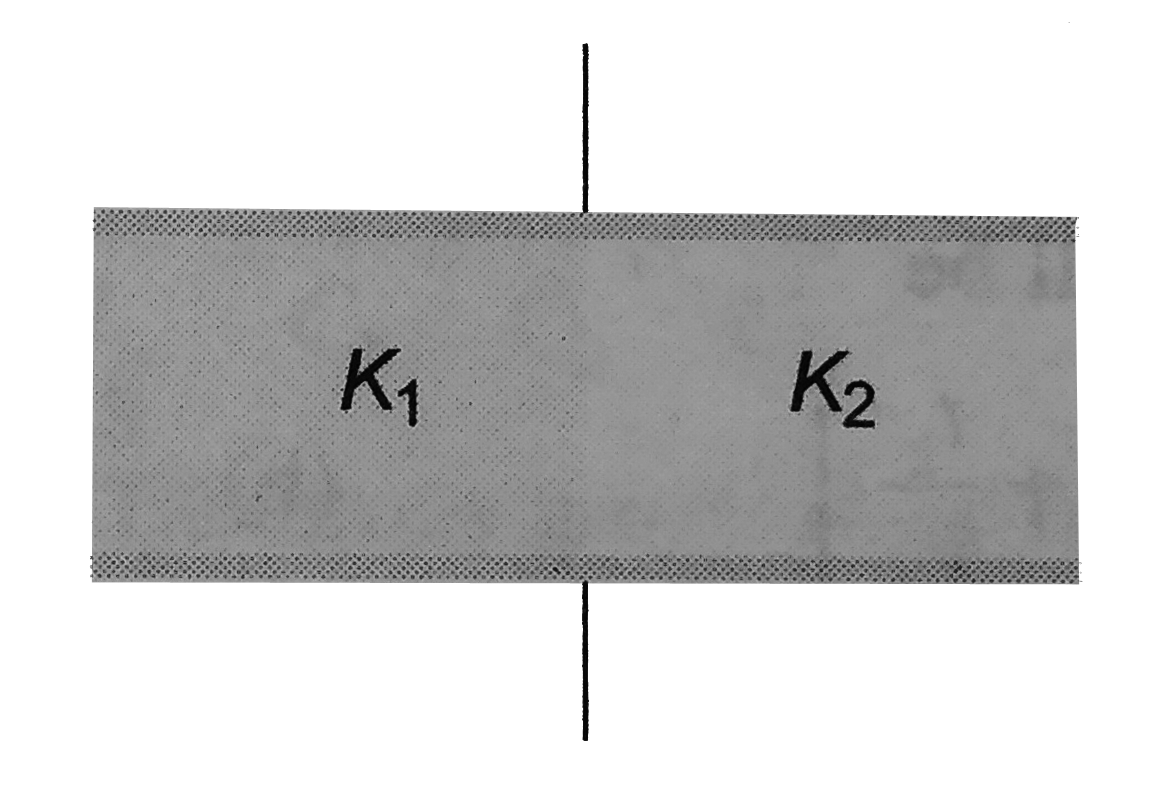
ε0At(k1+k2)
ε0At.k1+k22
2ε0At(k1+k2)
ε0At.k1+k22
Step by step video & image solution for A parallel plate condenser is filled with two dielectrics as shown. Area of each plate is A "metre"^(2) and the separtion is t metre. The dielectric constants are K_(1) and K_(2), respectively. Its capacitance in farad will be by Physics experts to help you in doubts & scoring excellent marks in Class 11 exams.
Topper's Solved these Questions
Similar Questions
A parallel plate capacitor is filled with dielectrics as shown in Fig. What is its capacitance ?
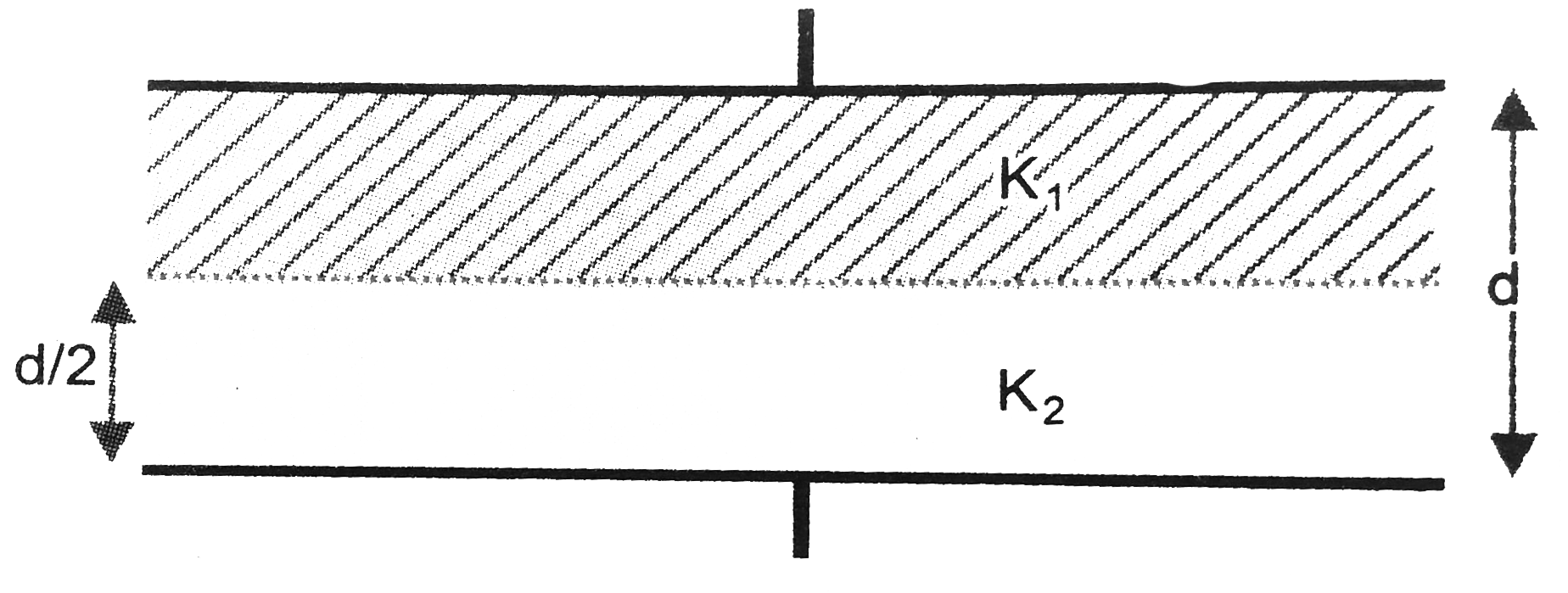 View Solution
View SolutionThe capacitance of a parallel plate capacitor with plate area A and separation d is C. The space between the plates in filled with two wedges of dielectric constants K1 and K2 respectively. Find the capacitance of resulting capacitor.
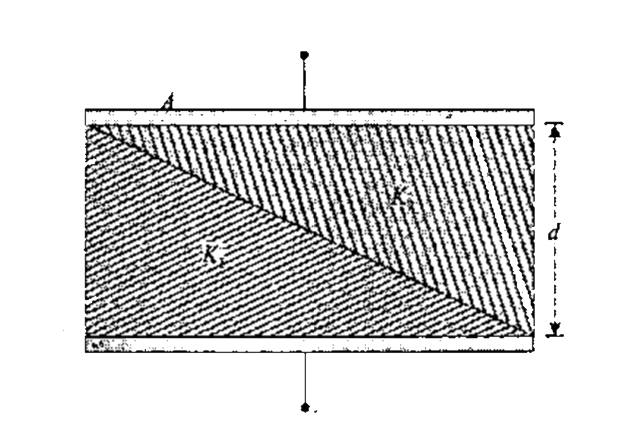 View Solution
View Solution
Knowledge Check
- Question 1 - Select One
A parallel plate capacitor is filled with dielectrics. What is capacitance?
 A2K1K2K1+K2BK1K2K1+K2C2ε0Ad(K1K2K1+K2)D2ε0Ad(2K1+K22K1K2)
A2K1K2K1+K2BK1K2K1+K2C2ε0Ad(K1K2K1+K2)D2ε0Ad(2K1+K22K1K2) - Question 2 - Select One
A capacitor of plate area A and separation d is filled with two dielectrics of dielectric constant K1=6andK2=4. New capacitance will be
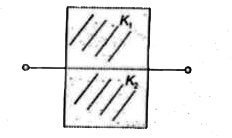 A4Aε0dB4.8Aε0dC5Aε0dD2.4Aε0d
A4Aε0dB4.8Aε0dC5Aε0dD2.4Aε0d - Question 3 - Select One
A parallel plate capacitor of area ‘A’ plate separation ‘d’ is filled with two dielectrics as shown. What is the capacitance of the arrangement ?
 A3Kε0A4dB4Kε0A3dC(K+1)ε0A2dDK(K+3)ε0A2(K+1)d
A3Kε0A4dB4Kε0A3dC(K+1)ε0A2dDK(K+3)ε0A2(K+1)d
The area A of a parallel plate capacitor is divided into two equal, halves and filled with two media of dielectric constants K1andK2 respectively. The capacitance of the capacitor will be
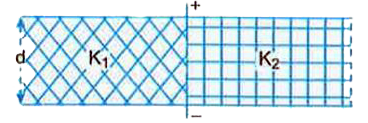 View Solution
View SolutionThe capacitance of a parallel plate capacitor with plate area A and separation d is C. The space between the plates in filled with two wedges of dielectric constants K1 and K2 respectively. Find the capacitance of resulting capacitor.
 View Solution
View SolutionThe space between parallel plate capacitors is filled with four dielectrics of equal dimensions but of dielectric constants K1,K2,K3andK4 respectively. If K is the dielectric constant of a single dielectric that must be filled between capacitor plates to have the same capacitance between A and B. Then we must have
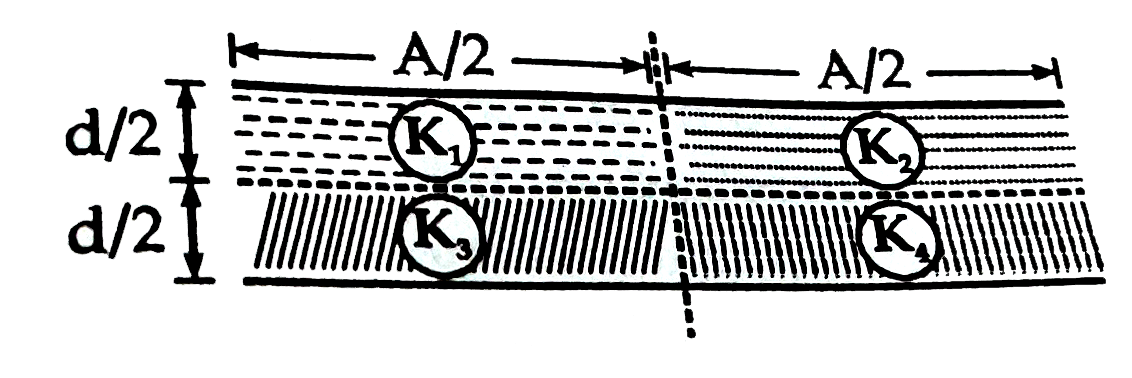 View Solution
View SolutionA parallel plate capacitor of plate area A and separation d is filled with two materials each of thickness d2 and dielectric constants ∈1 and ∈2 respectively. The equivalent capacitance will be
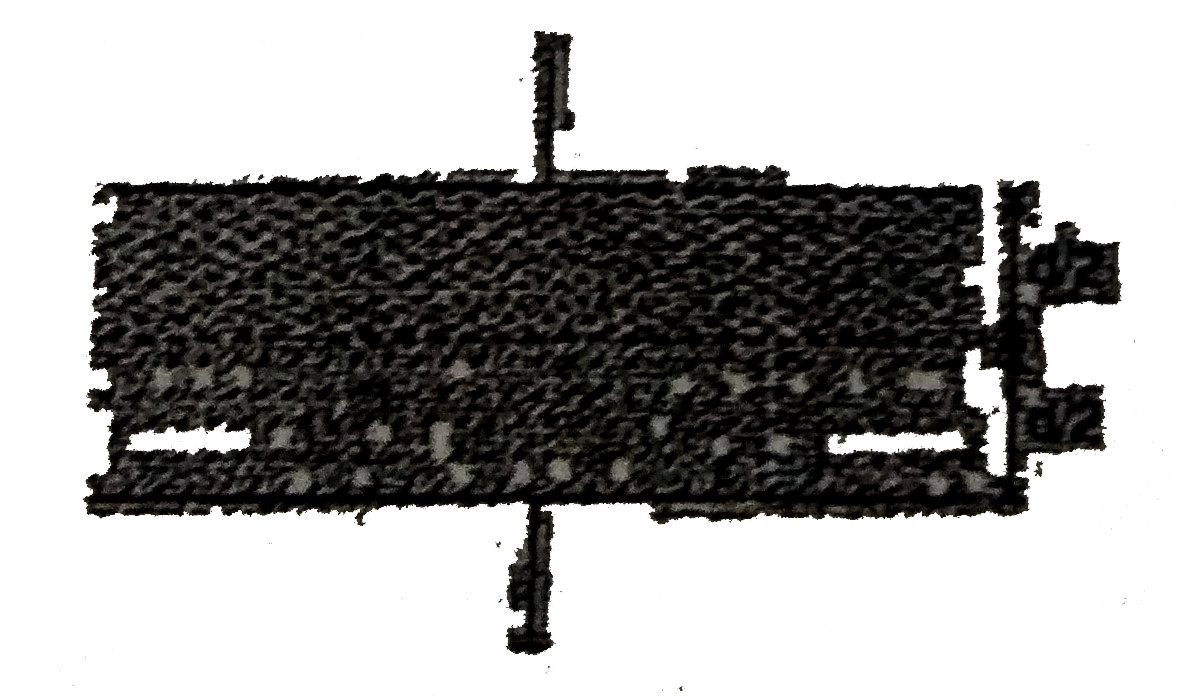 View Solution
View SolutionThe capacitance of a capacitor, filled with two dielectrics of same dimensions but of dielectric constants K1andK2 respectively as shown will be -
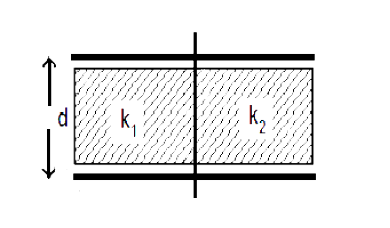 View Solution
View Solution
